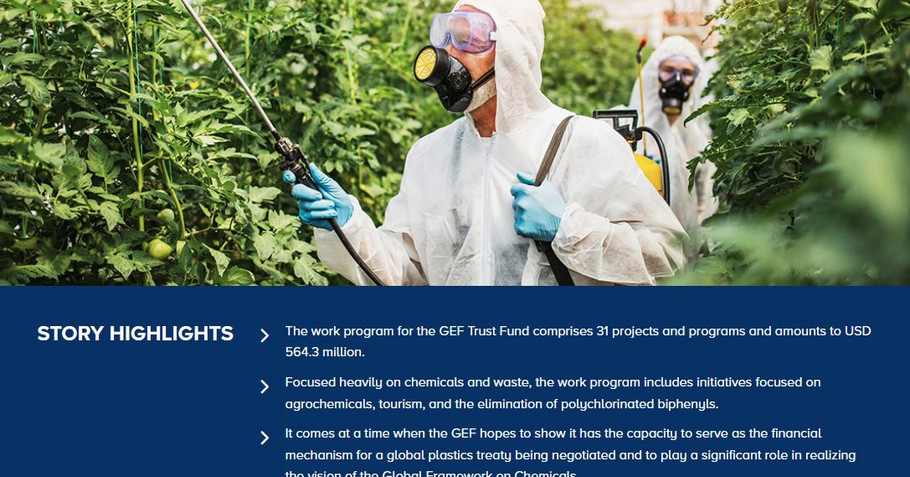
The 68th meeting of the Global Environment Facility (GEF) Council and the 38th meeting of the Least Developed Countries Fund/Special Climate Change Fund (LDCF/SCCF) Council adopted work programs collectively totaling USD 668.6 million. The third meeting of the Global Biodiversity Framework Fund (GBFF) Council took note of the progress made in GBFF programming.
The work program for the GEF Trust Fund comprises 31 projects and programs and amounts to USD 564.3 million. Focused heavily on chemicals and waste, the work program includes initiatives addressing agrochemicals, tourism, and the elimination of polychlorinated biphenyls (PCBs). It also includes the establishment of a global Chemicals and Wastes Financing Partnership Facility, to be housed within the Asian Development Bank (ADB). This work program comes at a time when the GEF hopes to show it has the capacity to serve as the financial mechanism for a global plastics treaty being negotiated and to play a significant role in realizing the vision of the Global Framework on Chemicals (GFC), adopted in 2023, according to Earth Negotiations Bulletin (ENB) summary report of the meeting.
The LDCF/SCCF Council approved a work program comprising seven projects and two programs for the LDCF, and one project and one program for the SCCF. Total resources approved amount to USD 92.05 million from the LDCF and USD 12.25 million from the SCCF.
The Council began work on steps needed to reform the GEF Partnership, comprising 186 countries, the Secretariat, 18 Implementing Agencies, as well as civil society organizations (CSOs), Indigenous Peoples, and the private sector that participate in the GEF. It also began preparations for the ninth GEF Trust Fund replenishment (GEF-9) that covers the period 2026-2030 – the five years remaining to achieve the 2030 Agenda on Sustainable Development and its SDGs. The Council’s decisions included launching the 18-month negotiation process for GEF-9 in January 2025, ENB reports.
Throughout the meeting, “top officials from multilateral environmental agreements (MEAs) that the GEF serves reminded the Council of the messages from the recent biodiversity, climate, and desertification Conferences of the Parties (COPs) regarding their conventions’ resource needs through 2030,” prompting “spirited… debates about the levels of ambition, reform, and innovation that GEF-9 must reflect at a particularly challenging time in the world.”
The Council undertook to improve the delivery of benefits to recipient countries, particularly least developed countries (LDCs) and small island developing States (SIDS). It also “launched a process of policy and procedural reform to streamline the GEF project cycle and get money into recipients’ hands sooner,” ENB notes.
The Council further agreed to consider another expansion of the ranks of GEF Implementing Agencies, seeking actors with expertise and experience in underserved regions, among other specific objectives. “Members also decided forthcoming Council sessions would consider options, including set-asides and incentives, to encourage greater balance in the distribution of projects and resources among GEF Implementing Agencies and to further engage multilateral development banks (MDBs) that attract substantial cofinancing and the private sector,” ENB writes.
Share: